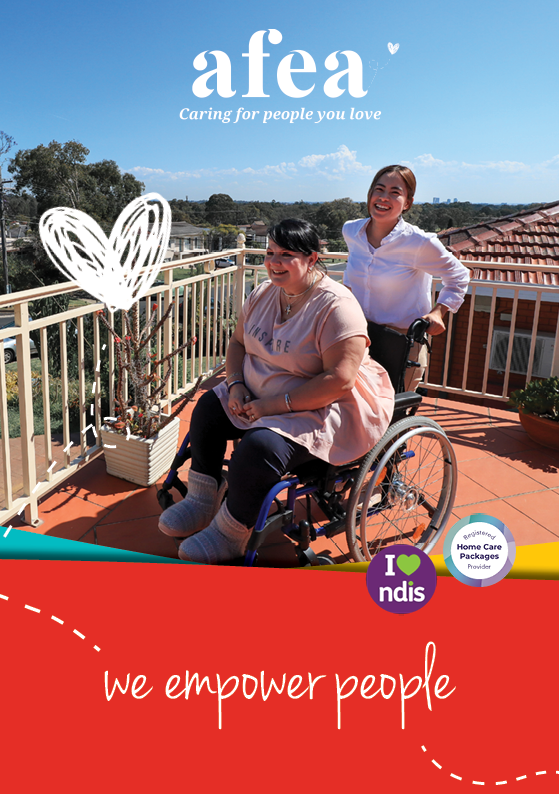Restrictive practices are methods that have the effect of restricting the rights or freedom of movement of a person with disability.
In certain cases, these methods may be necessary as a last resort to protect the individual and others from harm.
For example, if a person with disability hits themself and others when they get upset, they may be prescribed medication to help reduce the aggressive behaviour. This is one type of restrictive practice. (Keep reading to see the 5 types of restrictive practices.)
Restrictive practices are highly regulated and need careful consideration as they can present serious human rights breaches to the person living with disability.
What are the 5 restrictive practices?
Under the National Disability Insurance Scheme (Restrictive Practices and Behaviour Support) Rules 2018, certain restrictive practices are subject to regulation.
These are the five types of regulated restrictive practices:
- Seclusion: sole confinement of a person with disability in a room or a physical space
- Chemical restraint: use of medication or chemical substance for the primary purpose of influencing a person’s behaviour; this does not include the use of prescribed medication for management of an illness or condition
- Mechanical restraint: use of a device (e.g. restrictive clothing) to prevent, restrict or subdue a person’s movement for the primary purpose of influencing a person’s behaviour; this does not include the use of devices for therapeutic or non-behavioural purposes.
- Physical restraint: use of physical force to prevent, restrict or subdue movement of a person’s body or part of their body, for the primary purpose of influencing their behaviour
- Environmental restraint: restriction of a person’s free access to all parts of their environment, including items or activities
When can you use a restrictive practice?
As these methods are highly regulated, several conditions must be met before a restrictive practice can be used.
The conditions are outlined in the National Disability Insurance Scheme Act 2013 and the NDIS (Provider Registration and Practice Standards) Rules 2018.
The regulated restrictive practice, including strategies on how to gradually reduce and eliminate its use, must be included in a behaviour support plan and lodged with the NDIS Commission.
What is a behaviour support plan?
The behaviour support plan is written by an NDIS behaviour support practitioner, after conducting a functional behaviour assessment with the participant.
This plan contains evidence-based strategies on how to address a participant’s challenging behaviours.
The behaviour support practitioner develops the plan in consultation with the participant, their family, carers, provider and other relevant parties. The practitioner will take the person’s culture, religion, beliefs, sexual expression, linguistic circumstances, gender and family into account when writing the plan.
Supports should also be trauma informed. People with disability have high prevalence of traumatic experiences. Providers must ensure that any restrictive practice does not result in a person’s re-traumatisation.
The unauthorised use of a restrictive practice is a reportable incident, which means it has to be reported to the NDIS Commission. The provider needs to report the unauthorised use within five days of every use and facilitate the development of a behaviour support plan if the person with disability doesn’t have one.
What are restrictive practices in aged care?
If a residential aged care provider uses a regulated restrictive practice on an NDIS participant under their care, then they are also governed by the NDIS (Provider Registration and Practice Standards) Rules 2018.
This means the participant living in an aged care facility must have a behaviour support plan in place, and the unauthorised use of restrictive practice must be reported to the NDIS Commission.
How to reduce restrictive practices
Case Study: Seclusion
The following is based on a case study provided in the Regulated Restrictive Practice Guide. To read more case studies, please visit this page.
Background and behaviour of concern
Emma is a 32-year-old female with a diagnosis of a mild intellectual disability and Autism Spectrum Disorder. She receives support from a registered NDIS provider in a Specialist Disability Accommodation (SDA) setting. She lives with two other people.
Emma has a long history of aggressive behaviours. This includes hitting, biting and pushing people to the ground.
Restrictive practice
Emma’s comprehensive behaviour support plan included a restrictive practice protocol for the use of seclusion, used as a last resort when Emma was at significant risk of hurting herself and others.
Functional behaviour assessment review
The NDIS behaviour support practitioner reviewed Emma’s previous behaviour assessment, as well as psychiatric reports and NDIS provider reports and data.
The behaviour support practitioner also had meetings with Emma, observed her and interviewed her family and NDIS support staff.
The review showed that one significant reason for Emma’s aggressive behaviour was escape.
She would become aggressive to escape situations and tasks that she found overwhelming and stressful.
Comprehensive behaviour support plan review
Based on these findings, Emma’s NDIS behaviour support practitioner updated her comprehensive behaviour support plan.
The plan included the following strategies to increase Emma’s quality of life and help support the reduction and elimination of seclusion:
- encouraging Emma to ask for breaks with tasks she found overwhelming
- supporting Emma to go to a quieter area of the house when others were arguing
- with Emma’s consent, staff helped find an appropriately trained psychologist with experience in working with people with Autism Spectrum Disorder and intellectual disability. This was to support her to develop her social skills and emotion regulation strategies.
- using calming routines
- designed a sensory room for Emma tailored to her sensory needs, in consultation with an occupational therapist
Outcome
Previously, seclusion was used, on average, once a fortnight. The implementing provider gradually reduced the use of this restrictive practice over the next 18 months. Emma felt supported and safe. She also developed alternative skills to manage stressful and overwhelming situations.
Sources
We hope that’s a good starting point for your understanding of restrictive practices.
For more info, please visit the following sources:
Behaviour support and restrictive practices (ndiscommission.gov.au)
Do you need mental health support services?

We can support you to overcome isolation, reduce loneliness and connect with others.
We also offer safe housing in our Supported Independent Living and Specialist Disability Accommodation properties. Afea provides a supportive environment and 24/7 support from our team of carers.
Contact us to start building a team of support workers based on your mental health needs and goals.















